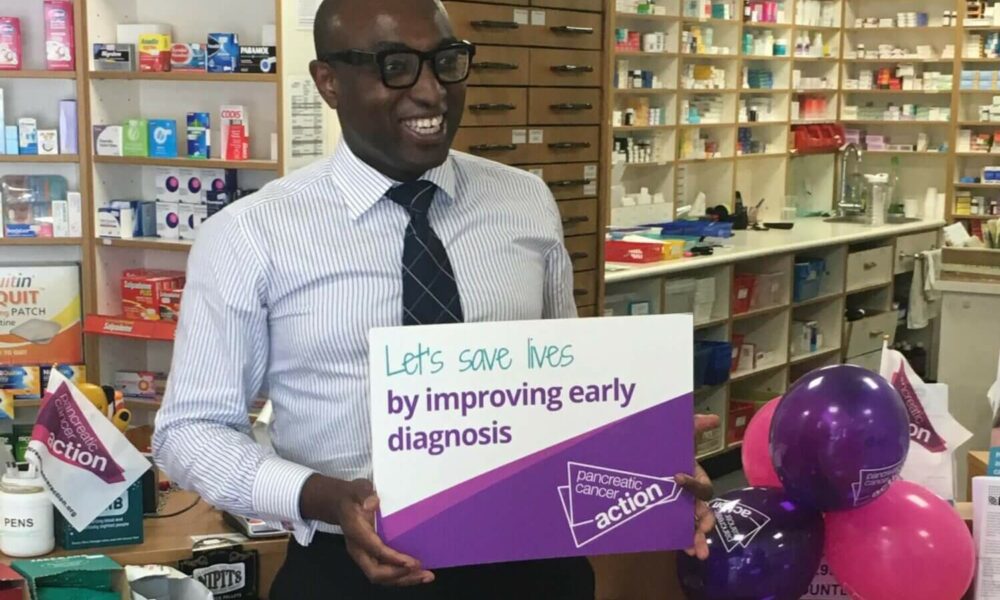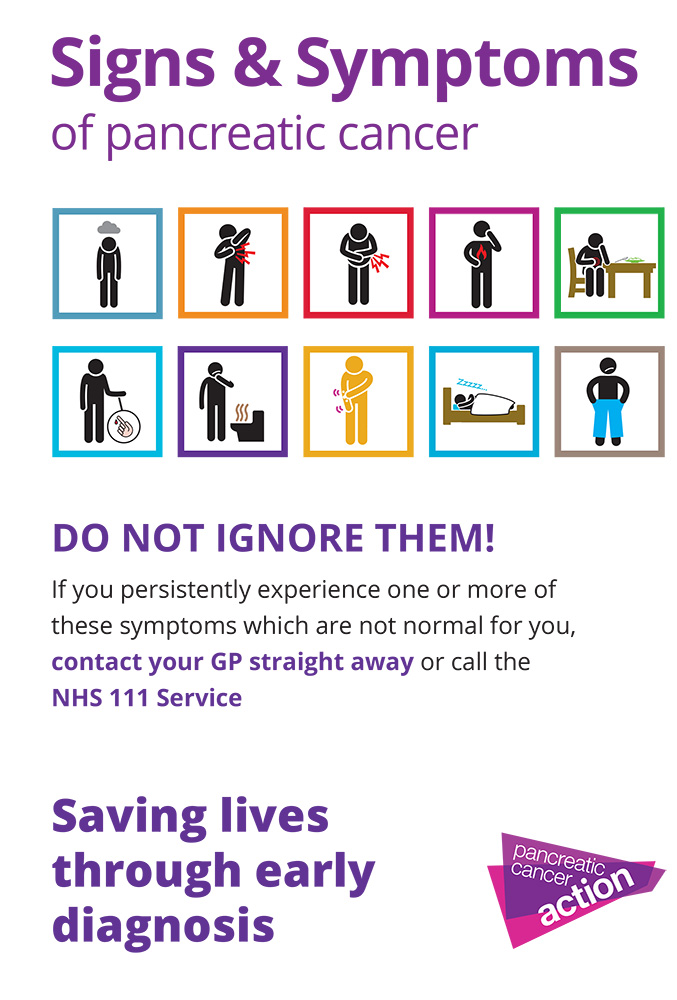Supporting those with visual impairments and sight loss
Pancreatic cancer does not discriminate. Regardless of gender, ethnicity or disability - everyone is at risk. At Pancreatic Cancer Action, we aim to help and support all patients, their families and carers.

However, we know that not everyone can access that support equally. That’s why last year, we began working with the Royal National Institute of the Blind (RNIB) to have some of our key patient and family support information transcribed into braille and large print for the visually impaired.
A small number of pancreatic cancer patients and survivors experience sight loss due to a complication with diabetes known as diabetic retinopathy. You may recall our ‘Know Your Type’ campaign from Pancreatic Cancer Awareness Month in November 2022 , where we highlighted the link between different types of diabetes and pancreatic cancer. Diabetes is a risk factor, potential symptom, and likely consequence of pancreatic cancer diagnosis, and this is because the problems in the pancreas cause diabetes. Diabetes is the leading cause of preventable sight loss in the UK, and having diabetes can mean you are two times more likely to get cataracts and one and a half times more likely to get glaucoma.
We want to raise awareness of pancreatic cancer symptoms for those with sight loss and visual impairment, allowing any symptoms to be closely monitored. This could lead to an earlier pancreatic cancer diagnosis, potentially saving a life.
With the support of the RNIB, we have had three essential resources made accessible for those with visual impairments. These include a large print version of our ‘Signs and Symptoms’ poster, our ‘Quick Guide to Pancreatic Cancer’ leaflet, and our ‘What is Pancreatic Cancer?’ booklet translated into braille.

These translations are just a small step in the right direction towards improving survival rates through early diagnosis and getting patients the support they need. We won’t stop here, and we hope to have many more of our booklets and resources translated and made accessible in the future.
On the path to ensuring the entirety of the public gets the support they need, we took the first step by translating our most popular resources into the six most spoken languages in the UK after English. These are Polish, Urdu, Punjabi, Bengali, Gujarati, and Arabic; these resources are already making a difference. However, we knew there was a long way to go, and our partnership with the RNIB will ensure we keep going.
We are continuously working towards improving access to health information for everyone. Our accessibility statement can be read online here: Accessibility Statement | Pancreatic Cancer Awareness | PCA (pancreaticcanceraction.org)
Can you help us?
If you live with visual impairments and would like to help us review our booklets and resources, please email heather@panact.org. We are always looking for reviewer volunteers to ensure our information is accessible for all and invite feedback to work towards reaching as many people as possible.
To help support the work we are doing, please donate below.